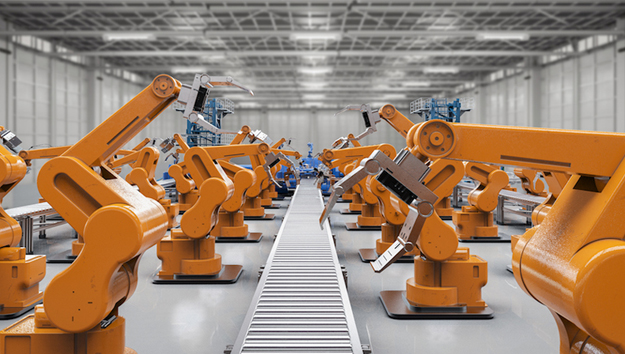
Modern Industry Robots & Cobots: What’s The Difference?
Robotics is a vast field, with many disciplines and research avenues housed under one umbrella term. In the past few years, the mainstream application of robotics in the mechanical industry and manufacturing sector has seen a rapid influx of automation and custom machinery. These machines are designed to handle a multitude of tasks and processes with minimal error. However, to the untrained eye, robots usually include any sort of machinery that performs pre-specified tasks. In reality, there’s a lot more depth to the term than meets the eye. In this article, we’ll address a common misconception in the industry: the actual difference between robots and cobots.
Mainstream MachineryBefore we get into the core difference, let’s take stock of why robotics and machinery are becoming mainstream in the global industry. To put it in a nutshell, they
- Production Optimization:Specialized machinery can streamline the manufacturing process, especially if there are multiple levels to the production cycle.
- Cost-Effective Options:Robotic components in a manufacturing unit require lesser upkeep, investment and maintenance than a human resource component in its place.
- Large Scale Capacity:Incorporating robotics into the manufacturing cycle allows for large scale expansion, especially in terms of managing the logistics of such an expansion.
Currently, there are a handful of options available to commercial business owners to optimize their operations through robotics. To get the best value-for-money with these options, understanding the difference between robots and cobots is key.
Robots Vs. CobotsRight off the bat, let’s clear the air around the basics of these two options. Both of them revolve around smart machinery that is designed to facilitate a specific process in the cycle. However, here’s the main difference between robots and cobots.
- Robots are higher function machinery parts which can automate and conduct a process entirely on their own, with minimal supervision.
- Cobots are machinery designed to operate within a limited capacity to expedite a particular process in the cycle. They are meant to cooperate with human employees to facilitate a job that requires delicate operation.
What’s the difference from a commercial perspective, you ask? It’s simple logic: cobots are less self-sufficient and designed to cooperate with humans, adding a layer of complexity to their design. Therefore, they are priced higher due to the accommodation of reprogramming and maintenance in the long run. Robots, on the other hand, are priced significantly lower, owing to their advanced programming and higher specialization.
Process Optimization Done RightWhich option you pick between robots and cobots depends entirely on your business model and scale of operations. Which would you prefer for your establishment?
















